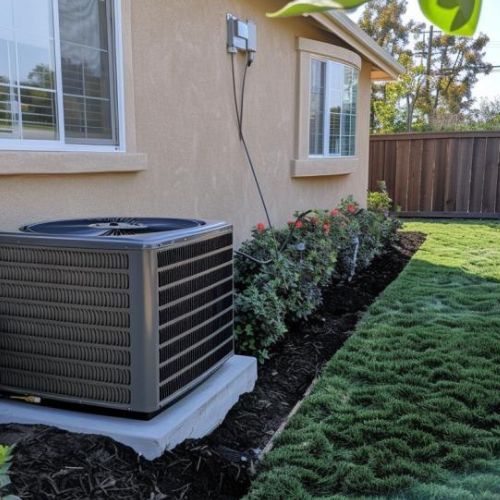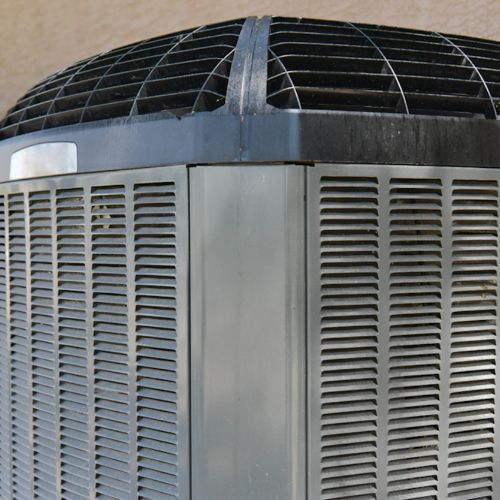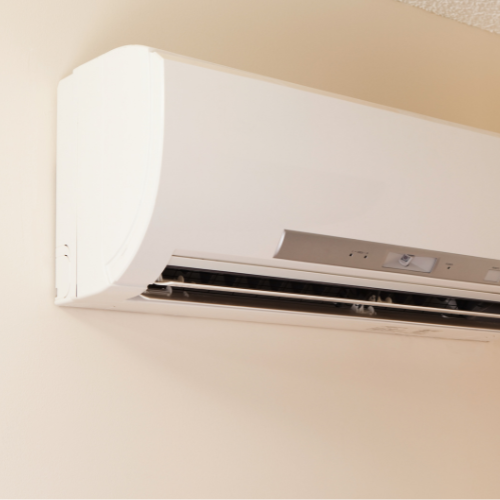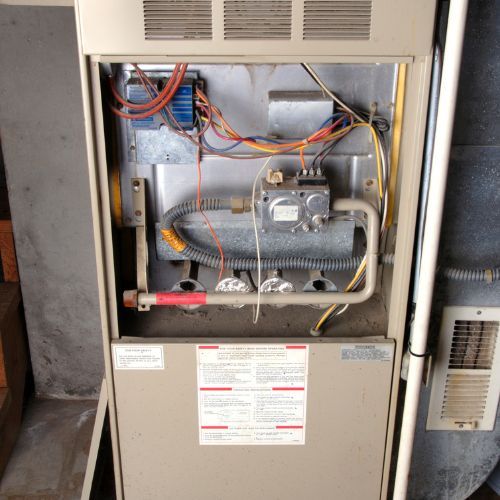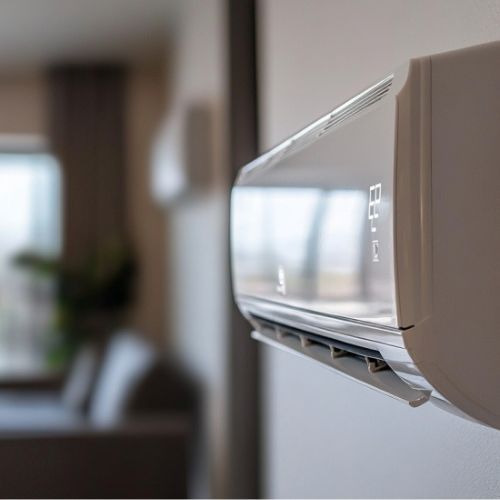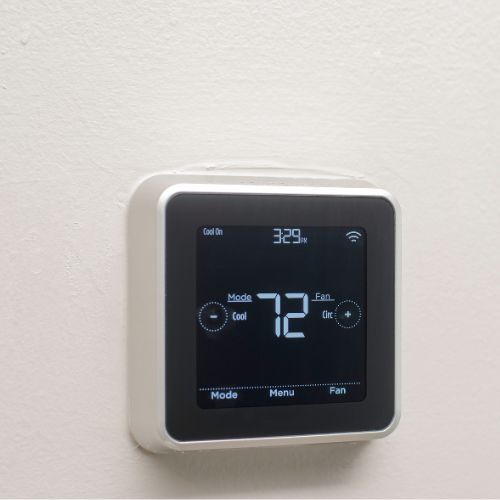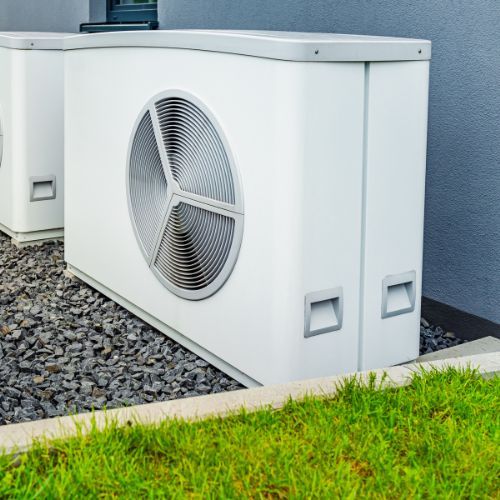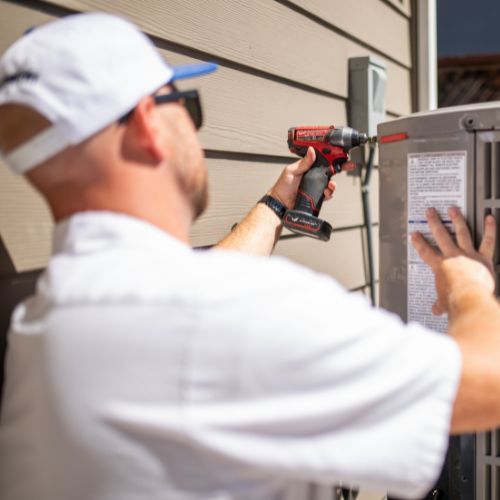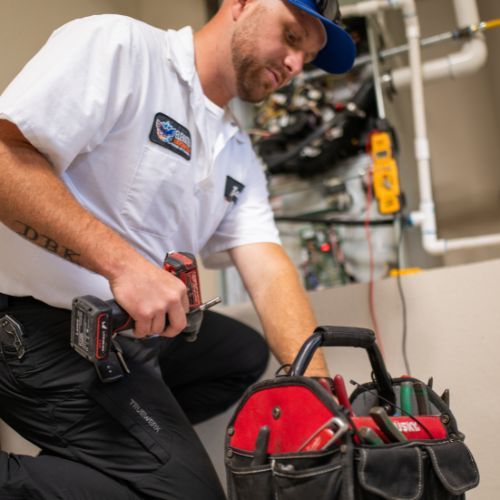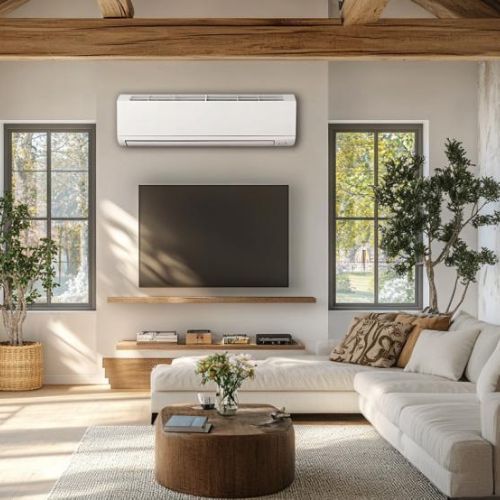The ABCs of AC Maintenance Explained
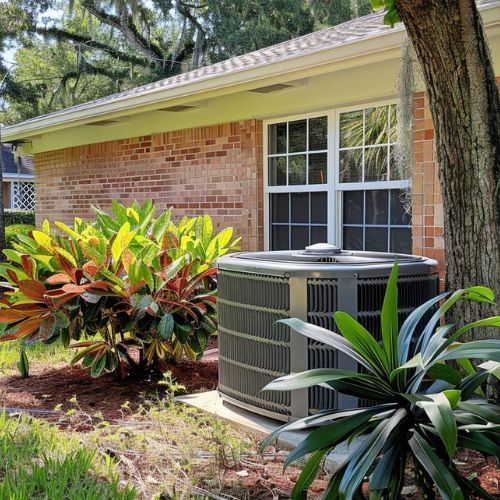
Table of Contents
ToggleTL;DR: AC maintenance boils down to understanding its components, performing routine checks, and addressing common issues. Focus on tasks like changing air filters (A), cleaning the outdoor unit (B), checking for leaks (C), inspecting ductwork (D), and cleaning evaporator coils (E). Consider switching to environmentally friendly coolants. Call professionals if you notice efficiency drops, strange noises, odors, or increased energy bills. Professional maintenance ensures safety, efficiency, and extends the lifespan of your AC unit.
When it comes to maintaining your air conditioning system, there are a few fundamental aspects you should be aware of. These include understanding the basic components of your system, knowing when and how to perform routine checks, and identifying common issues that may arise.
Sounds like too much to remember? It is when we put it in a technical vocabulary. We can, however, make the entire process of understanding everything you’ll ever need about AC maintenance easy to understand and remember. To that extent, we’ll cover the ABCs of AC maintenance, so you never wonder what exactly you need to do!
Understanding Your AC Unit
You already know that your AC needs maintenance. Still, you might not really understand what the point of it is, which components should be your priority, and how often you should have a professional AC maintenance service attend to your home AC system.
An AC unit primarily consists of two components: a condenser and an evaporator. The condenser unit further consists of three main parts: a compressor, the condenser fan, and assorted coils. You can locate this part of your AC in the outside unit part of the system. The evaporator is located in the indoor section of the unit, working in tandem with the condenser to make the cooling process possible.
These two aspects of AC maintenance require the most attention. While you can take care of some basic maintenance like filter cleaning and replacement yourself, most repairs need to be performed by expert service professionals.
Importance of Routine Checks
Routine checks are the secret to keeping your AC in tip-top shape. By conducting regular inspections, you can detect any pending issues before they become significant, preventing the need for costly repairs and unexpected breakdowns in the future.
Remember that if you neglect to perform routine maintenance, your AC system will operate at reduced capacity, resulting in higher energy bills and a potential complete system failure. Well-maintained units consume less energy, reducing your electricity bills.
Regular AC checks involve a thorough examination of your cooling system’s components, such as the condenser, evaporator coils, air filters, and refrigerant levels. These checks help guarantee that everything works as it’s supposed to, allowing your AC to operate at peak performance. Additionally, routine maintenance helps extend the lifespan of your AC unit, maximizing your investment.
Common AC Problems and Their Causes
Common problems with AC units range from uneven cooling and refrigerant leaks to thermostat issues and inadequate maintenance. Getting familiar with these problems can help you identify when your unit requires professional attention. Understanding the common AC problems and their causes is crucial in troubleshooting and preventing potential issues.
Let’s take a closer look at some of the most frequently encountered problems:
- Inadequate Cooling. One key AC-related problem to consider is the failure of your system to do its job – cool your space effectively. This can be due to different reasons, ranging from a dirty air filter to inadequate refrigerant levels to a malfunctioning compressor. When your AC struggles to maintain a comfortable temperature, it’s time for a check-up.
- Strange Noises. Unusual noises coming from the unit are clear signs of an underlying issue with your AC. Buzzing, rattling, or grinding noises could be caused by loose components, worn-out belts, or debris stuck in the system. Never overlook these signs, as they might cause further significant damage.
- Leaks. Water pooling around the air conditioning system is a major sign of malfunction. If you notice any moisture or detect refrigerant leaks, it’s vital to have experts inspect it immediately. Leaks diminish the cooling efficiency and are also potentially harmful to the environment.
- Funny Smells. Foul odors emanating from your AC vents can be a sign of microbial growth or a clogged drain line. Mold or mildew can accumulate in the system, resulting in a musky odor or serious health hazards. Regular checks can help you detect these issues early and ensure your indoor air quality remains fresh and clean.
The ABCs of AC Maintenance
An easy way to remember how to take care of your AC is to simplify the priority of maintenance actions. To that extent, we’ll employ the ABCs of AC maintenance needed for the system to run efficiently:
A – Air Filter Replacement. Air filter replacement is one of the simplest yet most crucial AC maintenance tasks. Think of it as changing the oil in your car – it’s a quick job that can keep everything running smoothly. Regularly replacing your air filter can ensure cleaner indoor air and improved AC efficiency.
B – Brushing the Outdoor Unit. Regularly cleaning your outdoor AC unit can enhance its performance. The goal is to remove any debris that might have settled on the unit’s screens. Also, ensure that trees and bushes are trimmed around your unit, as anything within 2 feet can cause it to work harder than necessary.
C – Checking for Leaks. Inspect your air handler for any signs of leaks. If you notice water in the pan or any other signs of leakage, it could indicate a problem with your pipes or a refrigerant leak. In such a scenario, you need to enlist the help of a professional AC service.
D – Ductwork Inspection. A network of ducts delivers cooled air throughout your home. However, dust, debris, or leaks in these ducts can disrupt the performance of your AC. Regularly inspect your ductwork and get it cleaned or repaired as necessary.
E – Evaporator Coil Cleaning. The evaporator coil performs a crucial process for cooling your space by absorbing heat from the air. However, over time, these coils can collect different particles, like dust and dirt, resulting in a drop in their efficiency. Regular cleaning of the evaporator coils can ensure your AC continues to cool your home effectively.
F – Freon or Puron. Freon, a common refrigerant used in AC units, is being phased out due to its environmental impact. The replacement, often called Puron, is a cleaner and more environmentally friendly option. If your AC unit still uses Freon, consider switching to a unit that uses approved coolants.
When to Call a Professional
While regular maintenance can keep your AC unit in good shape, there are instances when you should call a professional. If you notice your AC isn’t cooling the space as efficiently as before, weird noise or smells coming from it, an increase in the energy bill, or a frequent on-off cycling of your AC, you need to call in the professionals.
Hiring a qualified technician offers several advantages:
- Expertise and Experience. Professional technicians know the right techniques to inspect and pinpoint any AC problems and resolve them promptly. They can detect potential issues that may not be apparent to untrained eyes, ensuring your system operates optimally.
- Safety and Efficiency. AC systems contain some potentially hazardous components, like refrigerants and electrical parts. By hiring expert services, you keep yourself safe from any risks and provide optimal care for your system.
- Comprehensive Inspection. During a professional AC maintenance visit, professionals begin by thoroughly inspecting your entire system. They look for signs of leaks, clean the coils, and perform any necessary repairs or adjustments. This comprehensive approach is crucial in catching more minor problems early and stopping them from escalating into major ones.
- Extended Lifespan. Regular professional maintenance extends the lifespan of your AC unit by a significant portion. Addressing minor issues as soon as possible helps keep your system in top condition, preventing premature breakdowns and costly replacements.
Wrapping Up
Understanding the ABCs of AC maintenance can help you keep your unit in top shape, ensuring a comfortable home environment during the hot summer months. Regular maintenance is also crucial in prolonging the lifespan of your AC unit and cutting your costs in the long run.
So, by remembering the ABCs of AC maintenance (and a few other letters we provided), you guarantee your unit will continue to serve you efficiently for years to come. All you need to do is visit Elevated Comfort’s website – professionals with over 30 years of experience in the field.
Reach out to us to schedule an inspection and we’ll perform all assorted maintenance and devise a customized maintenance plan for your home!
